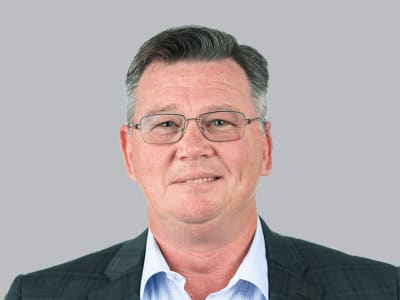On 1 July 2026, the government’s new ‘Payday Super’ reform will come into full effect – ushering in a complete change to the way businesses manage superannuation payments for their employees.
The reform will require employers to align Superannuation Guarantee (SG) contributions with pay cycles, ensuring super is paid on payday rather than quarterly.
While the aim is to protect employees’ retirement savings, businesses will need to re-think their financial practices ahead of time to avoid disruptions and hefty penalties. This is particularly relevant for medical practices and NDIS providers, which depend on financial claims processes as part of their cashflow management.
Re-thinking cashflow management due to Payday Super
With superannuation payments traditionally made every quarter, businesses have had the luxury of using these funds as working capital before making the required contributions. The existing process has also allowed for a 28-day due date after each quarter – a buffer that will seriously decrease under the new system.
Once it comes into play, superannuation payments will need to be deposited into employees’ super funds within 7 days of each payday. This not only eliminates the ability to hold onto the funds, but makes prompt payments essential. Missing a deadline (even by a day) can result in significant penalties under the updated SG charge framework, with the ATO now able to closely monitor super payments through real-time data from Single Touch Payroll.
Medical practices and NDIS providers that would normally accumulate billings, pay wages, and contribute to super at the end of the quarter, will need more regular liquidity to cover these payments. Habits such as waiting until the last minute will have to change to prevent severe cash crunches and financial consequences that include:
- interest charges
- administrative fees
- penalties of up to 50% of the outstanding amount
Keep in mind that any outstanding amounts beyond the 7 days will also affect a business’s ability to access arrangements such as Small Business Restructuring, which requires all employee entitlements (including super) to be up to date.
Prepare for Payday Super sooner than later
Waiting until 1 July 2026 to adapt your cashflow practices is a recipe for disaster. It takes time for a business to adjust to even relatively small changes in financial practices, let alone those that are strongly entrenched and have been in place since the beginning of the SG system.
There’s nothing to stop you from starting early. Learning to align super payments with payroll now will give you time to test systems, adjust cashflow practices, and resolve issues before the new rules take effect. That way if you make a mistake, you can fix it without breaching any SG regulations – as opposed to after the transition when any missed payments will result in immediate breaches.
To start preparing, you could:
- Review payroll systems to make sure your system can process super contributions with each pay run, and upgrade it if needed.
- Align cashflow management by adjusting your cashflow to allow for more frequent super payments, and eliminating the current practice of saving up funds for months (or using them as working capital).
- Train your team on the change and explain the penalties the business will face in the event of non-compliance.
- Monitor super payments to ensure they arrive in employee super funds within the allowable 7-day period.
- Plan for contingencies such as potential delays in reimbursed funds, including rejected combination billing claims for medical practices, or other cashflow hiccups that could affect super payments.
By doing this, you can help your business avoid the financial and administrative stress that is likely to ensue once the new system arrives. Instead, superannuation payments will quickly become as routine as payroll, and you can maintain focus on running your business.
In light of this change, medical practices may also find it beneficial to invest in training for their doctors on how to combination bill correctly. This will reduce the chance of claims being rejected which would ultimately impact cashflow. Business for Doctors provides exceptional training in this area, and it may prove to be a greater asset to your business than simply aiding compliance with Payday Super.
To learn more about Payday Super, or for help with any tax compliance or cashflow concerns, contact your local RSM office.





